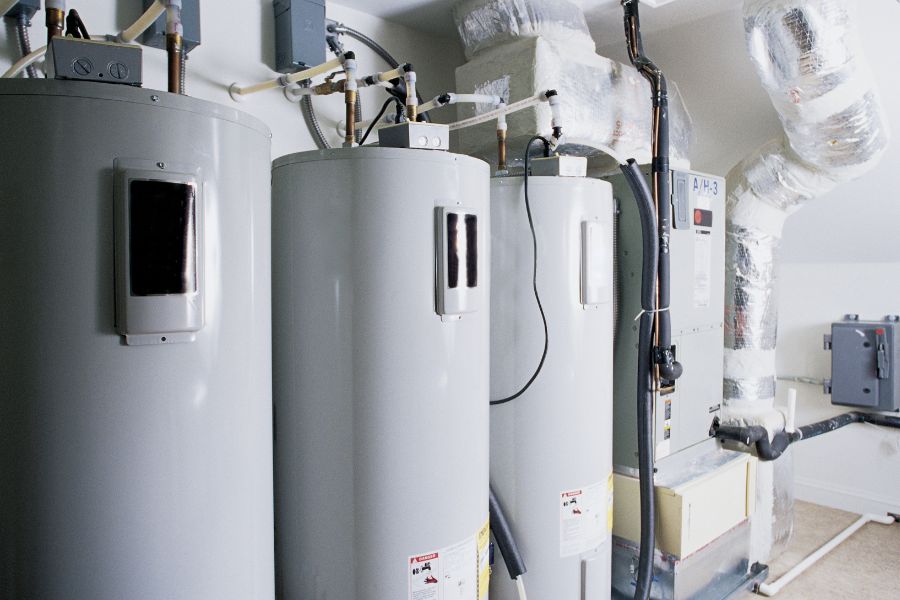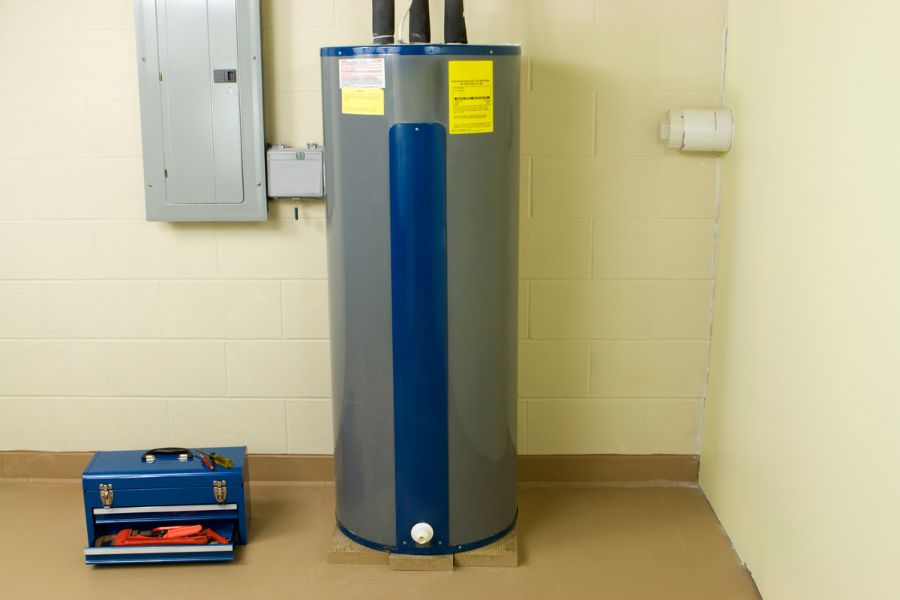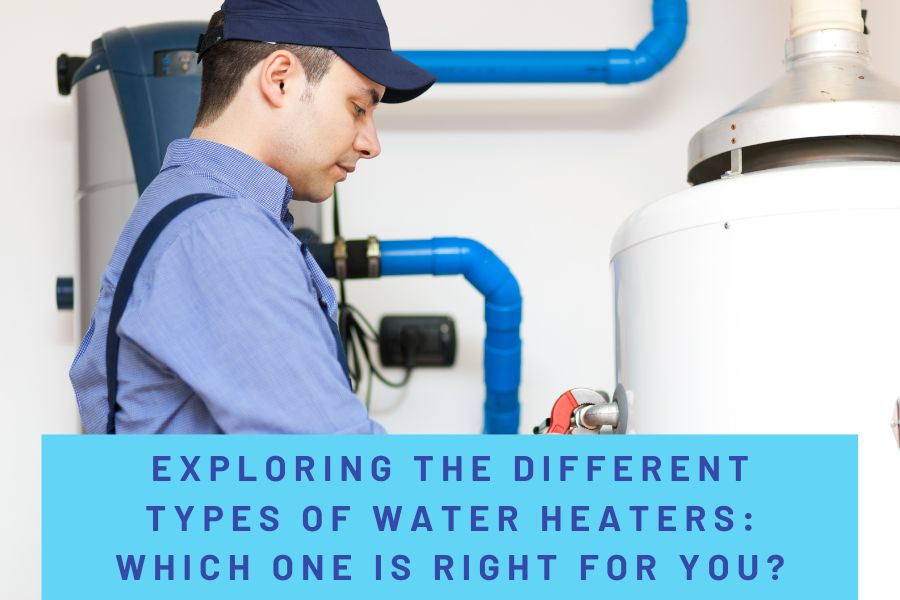When it comes to maintaining the comfort and functionality of our homes, few appliances are as quintessentially crucial as the water heater. In this guide, we delve into the world of water heaters, exploring various types available in the market.

Each type has unique features, advantages, and potential drawbacks, from standard tank types to tankless heat pumps and solar water heaters. Whether replacing an old unit or installing a new one, understanding these distinctions is critical to making an informed decision that best fits your needs and lifestyle.
Standard Tank Water Heaters
A standard tank water heater is the most commonly used type in households in Michigan. This unit has a storage tank that holds anywhere from 20 to 80 gallons of water and is heated by natural gas, liquid propane, or electricity. It’s an affordable option that can easily fit into any budget. However, it’s worth noting that this type of water heater has limited energy efficiency.
Small households may find that a standard water heater is too expensive energy-wise. Since a traditional water heater continually holds water hot, it will use energy whether or not any hot water is used. Households that don’t use much hot water may use power only to keep the water hot.

Tankless Water Heaters
Tankless water heaters, on the other hand, don’t store hot water in a tank like their standard counterparts. Instead, they heat cold water as it passes through pipes via electricity or burning gas. This allows for an endless hot water supply, and most models come with enhanced energy efficiency.
A tankless heater is ideal for small to mid-sized households using moderate hot water daily. Furthermore, these units are often installed in tight spaces, such as closets, since they require less space than standard water heaters.
The only downside is that tankless water heaters can be expensive to install, and for larger households that consume more hot water, two systems may be needed to meet the demand.
Heat Pump Water Heaters
Heat pump water heaters use an air-source heat pump system to draw warmth from the air and transfer it to the water. This water heater requires electricity and is usually more expensive upfront than a standard tank model. A heat pump water heater is typically not used in Michigan’s climate.
However, heat pump water heaters are two to three times more energy-efficient than a traditional electric storage unit, making them an ideal option for saving energy costs in the long run. Plus, these units come with non-metallic tanks, which are highly durable and don’t rust over time.
Solar Water Heaters
Last but not least, solar water heaters rely on the sun’s energy to heat water. As its name implies, this type of water heater uses solar panels to collect sunlight and convert it into usable energy for heating the water in a storage tank.
Solar water heaters are highly efficient and cost-effective in the long run, as they operate without electricity or gas. Plus, these systems also require minimal maintenance compared to other water heater types. The only downside is that it’s expensive to install – but many homeowners can recoup their investment within a few years due to the significant savings in energy costs.
No matter which type of water heater you choose, research all your options before purchasing. Most importantly, always consult a professional plumber or contractor for advice and installation services to ensure the unit is installed correctly and safely. Here at A2 Plumbers, we can help you decide which is suitable for your home and provide pricing estimates for the unit and installation. Call us today to learn more at (734) 291-0258.



